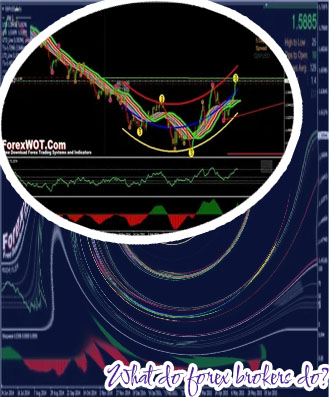
- Ecn forex broker
- Best forex
- Top broker forex india
- Regulated forex broker india
- Top rated forex broker
- Top 3 best forex brokers
- Best app for forex trading in india
- Top forex broker in world
- Forex broker reviews
- Forex broker volume
- Top 10 forex brokers in india
- Free credit forex broker
- Top forex broker
- Best forex application
- Best forex broker for indices
- Forex trading in india
- Best forex and crypto brokers
- Best paypal forex broker
- How to start forex trading
- Is forex trading legal in india
- Forex
- Top forex brokers
- Best forex broker for day trading
- Forex brokers in india
- Forex trading profit per day
- Forex trading us broker
- How much can be made from forex trading
- Forex for you login
- Rbi ban forex trading app list
- Forex broker
- Types of brokers in forex
Forex risk management

Forex trading in India can be a lucrative opportunity for investors, but it also comes with its own set of risks. It is important for individuals to understand the potential pitfalls and challenges associated with trading in the foreign exchange market. The following articles provide valuable insights and tips on how to navigate the risks of forex trading in India:
Forex trading in India can be a lucrative but risky venture for individuals looking to invest in the foreign exchange market. To better understand the risks involved in forex trading in India, it is essential to educate oneself on the potential pitfalls and challenges that may arise. The following articles provide valuable insights and tips on navigating the complexities of forex trading in India, helping traders make informed decisions and mitigate risks.
Understanding the Risks of Forex Trading in India

Forex trading in India has gained popularity in recent years, with many individuals looking to capitalize on the potential for high returns. However, it is crucial for traders to understand the risks involved in this volatile market. The foreign exchange market is highly speculative and can lead to significant financial losses if not approached with caution.
One of the key risks of Forex trading in India is the high level of leverage that is often offered by brokers. While leverage can amplify profits, it can also magnify losses, leading to a rapid depletion of trading capital. It is essential for traders to carefully manage their leverage and only trade with money that they can afford to lose.
Another risk to be aware of is the impact of geopolitical events and economic data releases on currency prices. Sudden political developments or unexpected economic indicators can cause sharp fluctuations in exchange rates, catching traders off guard. It is important to stay informed about global events and have a solid risk management strategy in place to mitigate potential losses.
One practical use case to highlight the importance of understanding the risks of Forex trading is that of a trader who diligently follows market trends and economic indicators. By staying informed and managing risk effectively, this trader was able to navigate volatile market conditions and achieve consistent profits over time. This positive result underscores the significance of being well-in
Tips for Minimizing Risk in Forex Trading in India
Forex trading in India can be a lucrative venture for those who are willing to take on the risks involved. However, it is important to remember that the forex market is highly volatile and unpredictable, which can lead to significant losses if not approached with caution. To minimize the risks associated with forex trading in India, there are a few key tips that traders should keep in mind.
One important tip for minimizing risk in forex trading is to always use a stop-loss order. This allows traders to set a predetermined price at which they are willing to exit a trade, helping to limit potential losses. Additionally, traders should be aware of the factors that can impact currency exchange rates, such as economic indicators, political events, and market sentiment.
Another tip for minimizing risk in forex trading is to diversify your investments. By spreading your capital across different currency pairs, you can help protect yourself from significant losses if one particular trade goes south. It is also important to stay informed about the latest market trends and developments, as this can help you make more informed trading decisions.
Overall, forex trading in India can be a rewarding experience for those who are willing to put in the time and effort to educate themselves about the market. By following these tips for minimizing risk, traders can increase their chances of success and
Regulatory Framework for Forex Trading in India: What You Need to Know
India has a complex regulatory framework governing forex trading, which is essential for anyone looking to participate in the foreign exchange market. The Reserve Bank of India (RBI) is the primary regulatory authority overseeing forex trading activities in the country. Individuals and entities engaging in forex trading must adhere to the guidelines set forth by the RBI to ensure compliance with the law.
One key aspect of the regulatory framework is the Foreign Exchange Management Act (FEMA), which governs all foreign exchange transactions in India. Under FEMA, residents are prohibited from trading in foreign exchange except through authorized dealers. This means that individuals looking to trade forex must do so through authorized channels to avoid legal repercussions.
Additionally, forex traders in India must be aware of the regulations surrounding margin trading and leverage. The RBI has set limits on the amount of leverage that can be used in forex trading to prevent excessive risks. Traders must also ensure that they are using authorized platforms for trading to avoid falling victim to scams or fraudulent activities.
As a resident of Mumbai, I find it crucial to stay informed about the regulatory framework for forex trading in India. It is essential to understand the rules and regulations to avoid any legal issues while engaging in forex trading. I highly recommend individuals interested in forex trading to familiarize themselves with the regulatory requirements to ensure
Common Mistakes to Avoid in Forex Trading in India
Forex trading in India has gained significant popularity in recent years, with many individuals looking to capitalize on the potential profits that can be made in the foreign exchange market. However, there are several common mistakes that traders often make which can lead to substantial losses. It is essential to be aware of these pitfalls and take steps to avoid them in order to be successful in forex trading.
One of the most common mistakes that traders make is not having a clear trading plan. It is crucial to have a well-defined strategy in place that outlines your goals, risk tolerance, and entry and exit points. Without a plan, traders are more likely to make impulsive decisions based on emotions rather than logic, which can lead to poor outcomes.
Another common mistake is overleveraging. Many traders in India are tempted to use high levels of leverage to amplify their potential profits. While leverage can increase your gains, it also magnifies your losses. It is important to use leverage cautiously and only trade with money that you can afford to lose.
Furthermore, traders often fail to properly manage their risk. Risk management is a crucial aspect of forex trading and involves setting stop-loss orders to limit potential losses. Additionally, diversifying your portfolio can help spread risk and protect your investments.